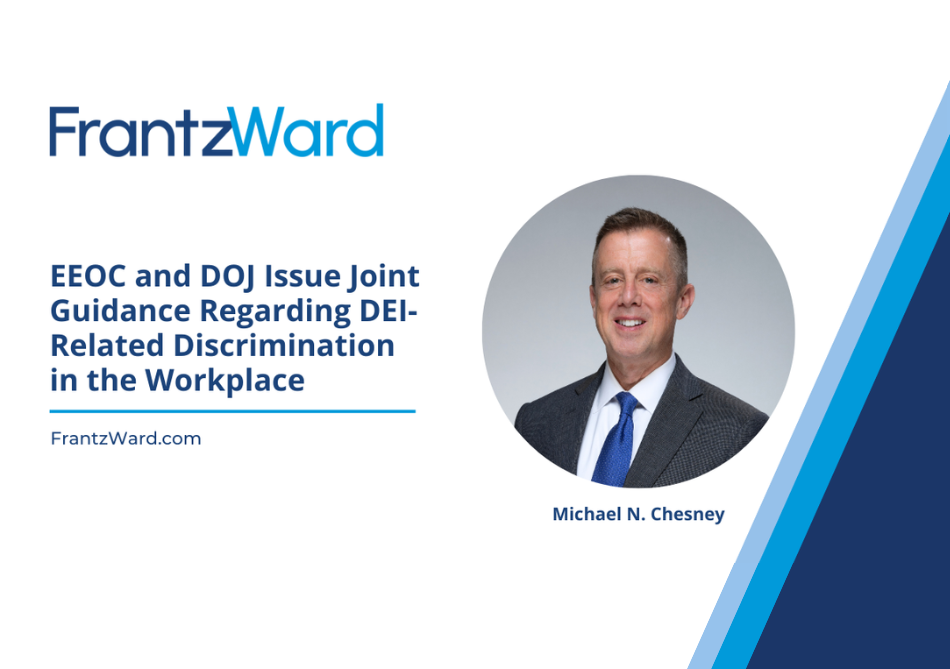EEOC and DOJ Issue Joint Guidance Regarding DEI-Related Discrimination in the Workplace
On March 19th, the Equal Employment Opportunity Commission (EEOC) and the Department of Justice (DOJ) issued a joint technical assistance document titled: “What to Do if You Experience Discrimination Related to DEI at Work.” The document aligns with the Trump administration’s ongoing efforts to curb DEI practices and comes just days after the EEOC announced that it was investigating DEI practices at several of the country’s largest law firms.
The EEOC/DOJ guidance seeks to provide examples of what these agencies view as DEI-related discrimination under Title VII of the Civil Rights Act of 1964. Some of the more noteworthy takeaways include the following:
- Diversity related quotas or other efforts at “balancing” a workplace are unlawful.
- DEI-related discrimination can include actions such as offering training, mentoring, or internship opportunities based upon race, gender, or other protected characteristics.
- Selecting diverse applicants for interviews based upon their race, gender, etc. in order to increase the diversity of a candidate slate may constitute discrimination.
- If sufficiently intimidating, hostile, or abusive, DEI training programs may create a hostile work environment.
- Limiting membership in certain workplace groups like Employee Resource Groups (ERGs) or other affinity groups based upon employees’ demographics may constitute discrimination.
- Separating employees based upon race, sex, or other protected characteristics during DEI and other trainings may constitute unlawful discrimination.
- Employees who protest or resist DEI efforts may be protected from adverse actions under Title VII’s anti-retaliation provisions.
For private employers, the guidance clearly signals the EEOC’s plan to focus on DEI-related discrimination as an enforcement priority.
Employers should review their DEI programs and training materials in anticipation of heightened scrutiny from the EEOC, as well as inevitable employee charges and litigation. Actions to consider include:
- Reviewing training materials, including materials used by third-party trainers, to avoid negative language or discussions about any particular groups (e.g., “white privilege”).
- Opening up ERGs and affinity groups to all employees.
- Avoiding mentoring, training, internship, and hiring initiatives that provide benefits or advantages only to certain demographic groups.
- Scrutinizing and reviewing efforts to “balance” diversity in the workplace, including the use of goals, and particularly quotas.
Please contact Mike Chesney or any member of Frantz Ward’s Labor and Employment Practice Group with questions regarding this new guidance or DEI-related discrimination issues.


